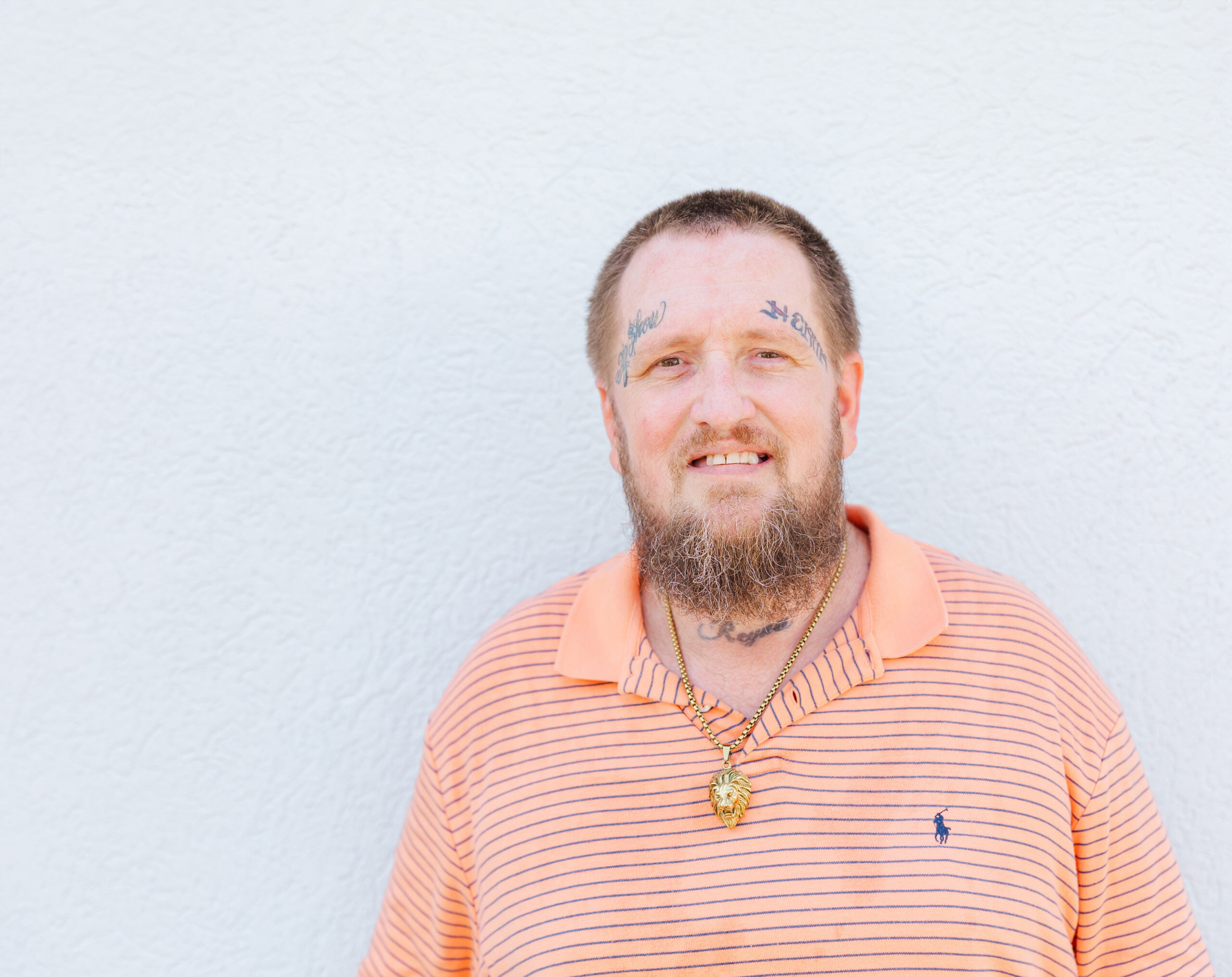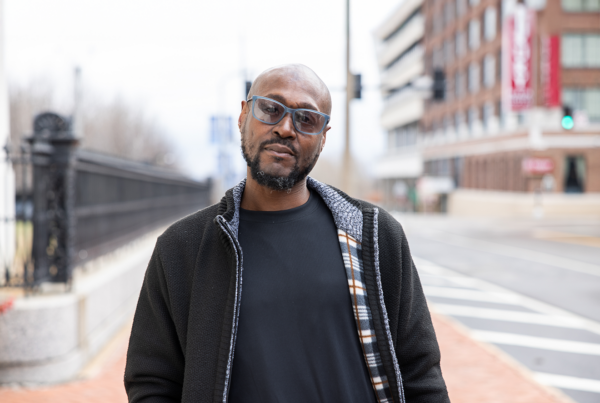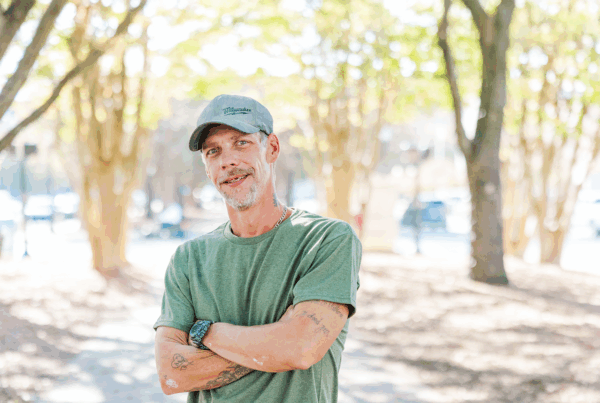Rudolph had overdosed so many times that local paramedics were on a first-name basis with him. “They’d say, ‘Rudy again?’” he recalls. “I was just that guy.” But in April 2023, lying in a hospital bed with rotting legs and a warrant hanging over his head, something shifted. “I got up off the ground,” he says. “That was the day I decided I was done.”
Rudolph’s story is not just one of recovery from addiction. It is about reclaiming purpose, family, and faith after decades shaped by abandonment, incarceration, and loss. Once a child forced to raise his younger brother alone, Rudolph is now a father reunited with his children and co-founder of a community support network. He is building the kind of life he once believed was never meant for him.
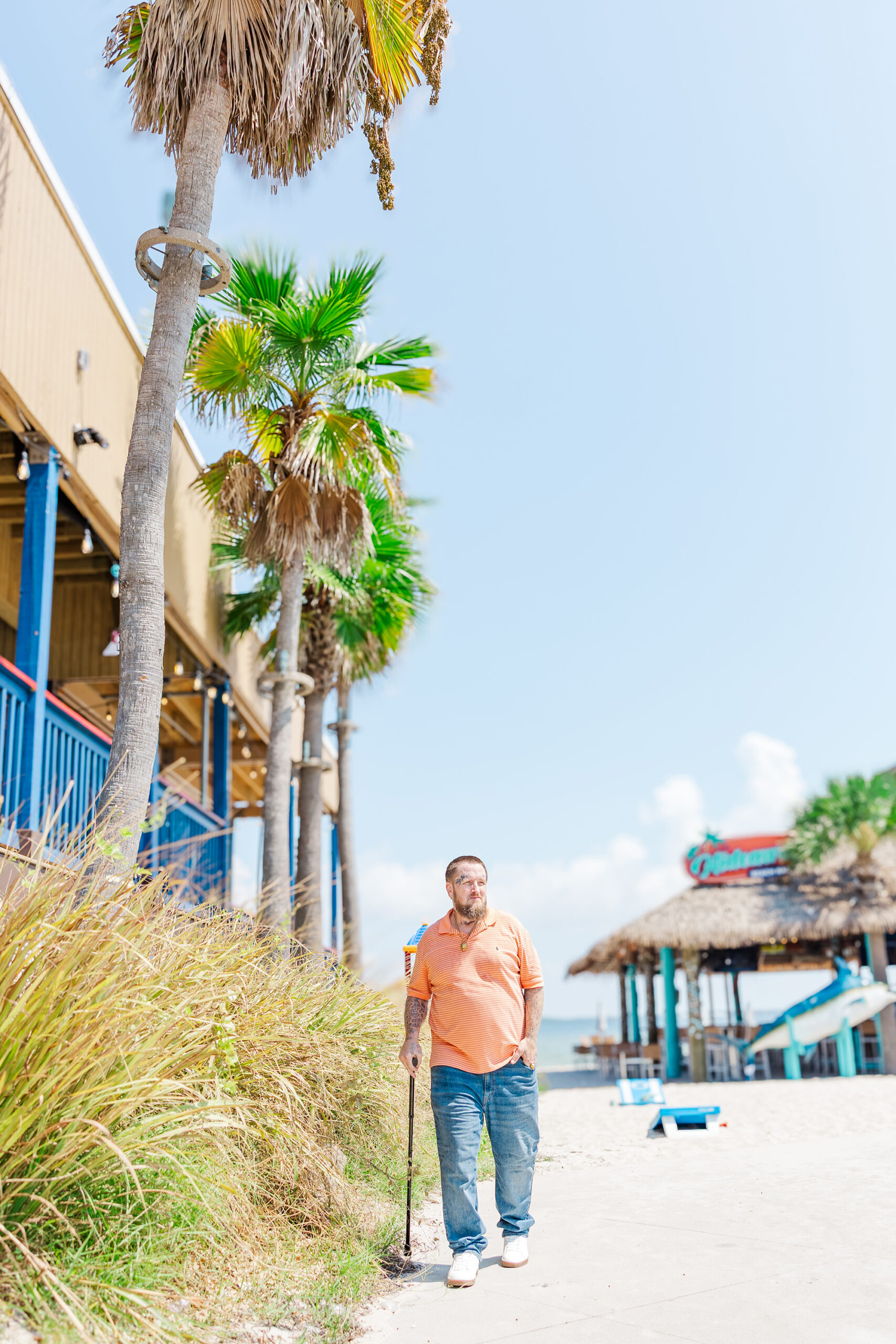
He grew up in Warren, Ohio, a small steel town. “All the men in my family were steelworkers,” he says. But by his teens, Rudolph had lost both of his parents. After his father died of throat cancer, he and his brother were left with a stepmother who abandoned them just two weeks after the funeral. “She said she was gonna clean the house… take us to her parents… and she never came back.”
That moment marked the beginning of his spiral. “I was catching the brunt of it,” he says. “Doing gang activity and all kinds of stuff… but I didn’t care.” With no guidance and a sibling to protect, he was pulled into the streets. He cycled through jail cells, shelters, and overdoses.
“I was always judged as the bad person… people would walk around me in public.”
“I was always judged as the bad person… people would walk around me in public,” he says. “But I was never a monster. I was never a monster.”
In the middle of this chaos, Rudolph became a father. But he was not able to show up for his children. “I was in no position to be a father,” he admits. From a distance, he watched his kids endure some of the same struggles he had lived through.
His experience echoes a wider crisis in the justice system. Nearly half of all men incarcerated in jails lived with a dependent child before their arrest. Of those detained pretrial without the ability to afford bail, more than half are fathers with children under 18. Incarceration often forces sudden changes in custody and home life, and can reduce a family’s income by as much as 22%. For children, the effects can be long-term, increasing risk of behavioral and emotional issues, educational setbacks, and even homelessness.
Then came the day Rudolph decided to change. His legs, infected after years of street life and being unhoused, were failing. Doctors warned him he might lose them. But instead of giving up, he chose sobriety. He got clean on April 20, 2023.
Soon after, he and his best friend Brad launched a recovery group called Offentsive. The name, “offensive” with an added “t,” is a nod to their shared recovery from fentanyl and their mission to reduce overdoses, homelessness, and human trafficking – issues that are often intertwined.
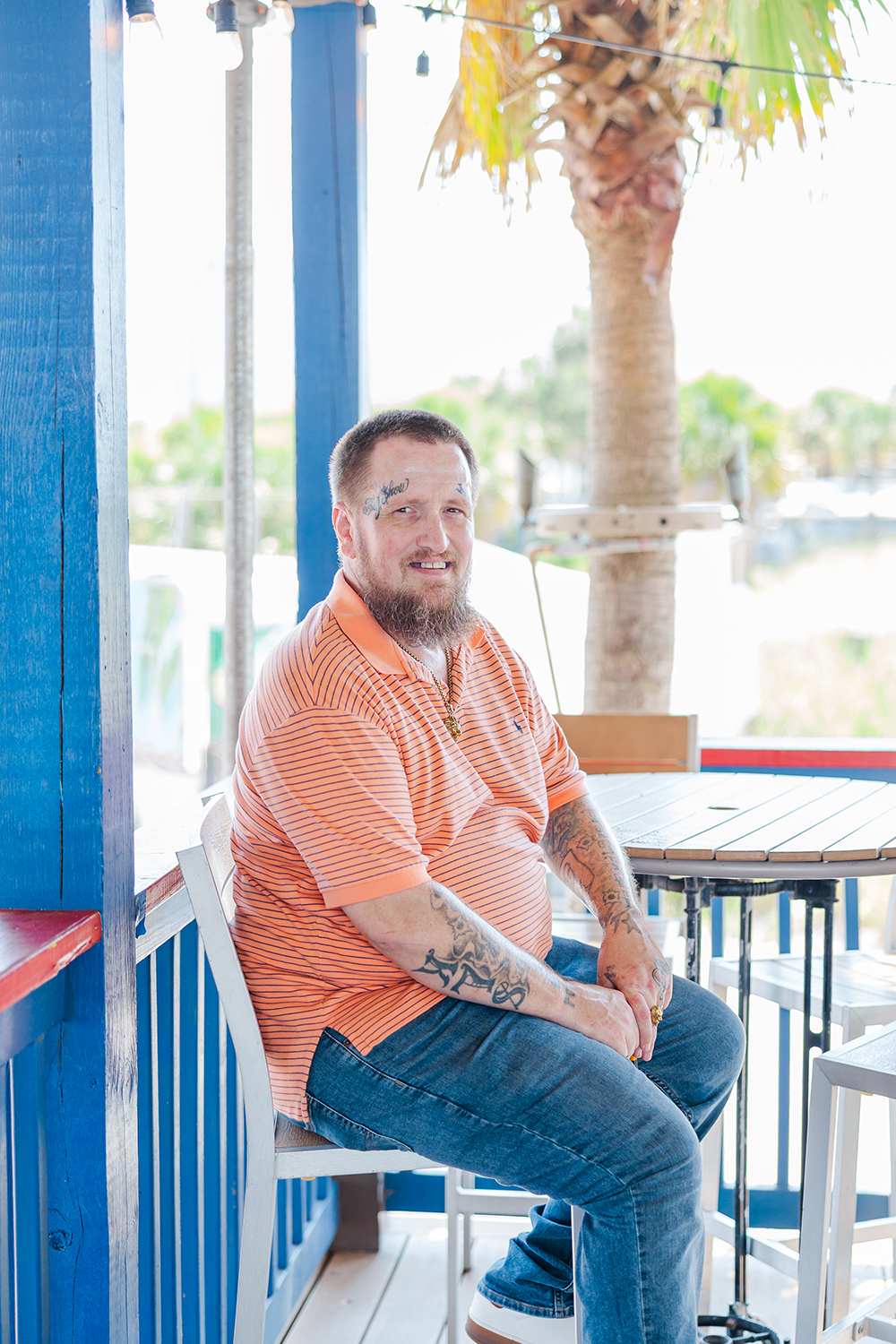
But even as his life turned around, the past caught up. A drug possession charge from before his sobriety led to a warrant. When he tried to turn himself in, the jail refused him due to the state of his legs. He ended up in the hospital. That is when he was introduced to The Bail Project.
“It started off with conversation.”
“It started off with conversation,” he says of his first meeting with Aliya, a bail disruptor with The Bail Project. “She was interested in hearing what I had going on… That was weird. I was still skeptical.” But Aliya kept showing up.
Aliya and The Bail Project posted Rudolph’s bail and supported him through two years of court proceedings. That time out of jail was critical. While free, he continued building Offentsive, stayed sober, accessed medical treatment for his legs, and most importantly, he restored his relationship with his children.
When asked how he explained the lost years to his kids, Rudolph kept it simple. “I fell short and I was wrong. I didn’t make the right decisions. And I apologized. And that was all I had.”
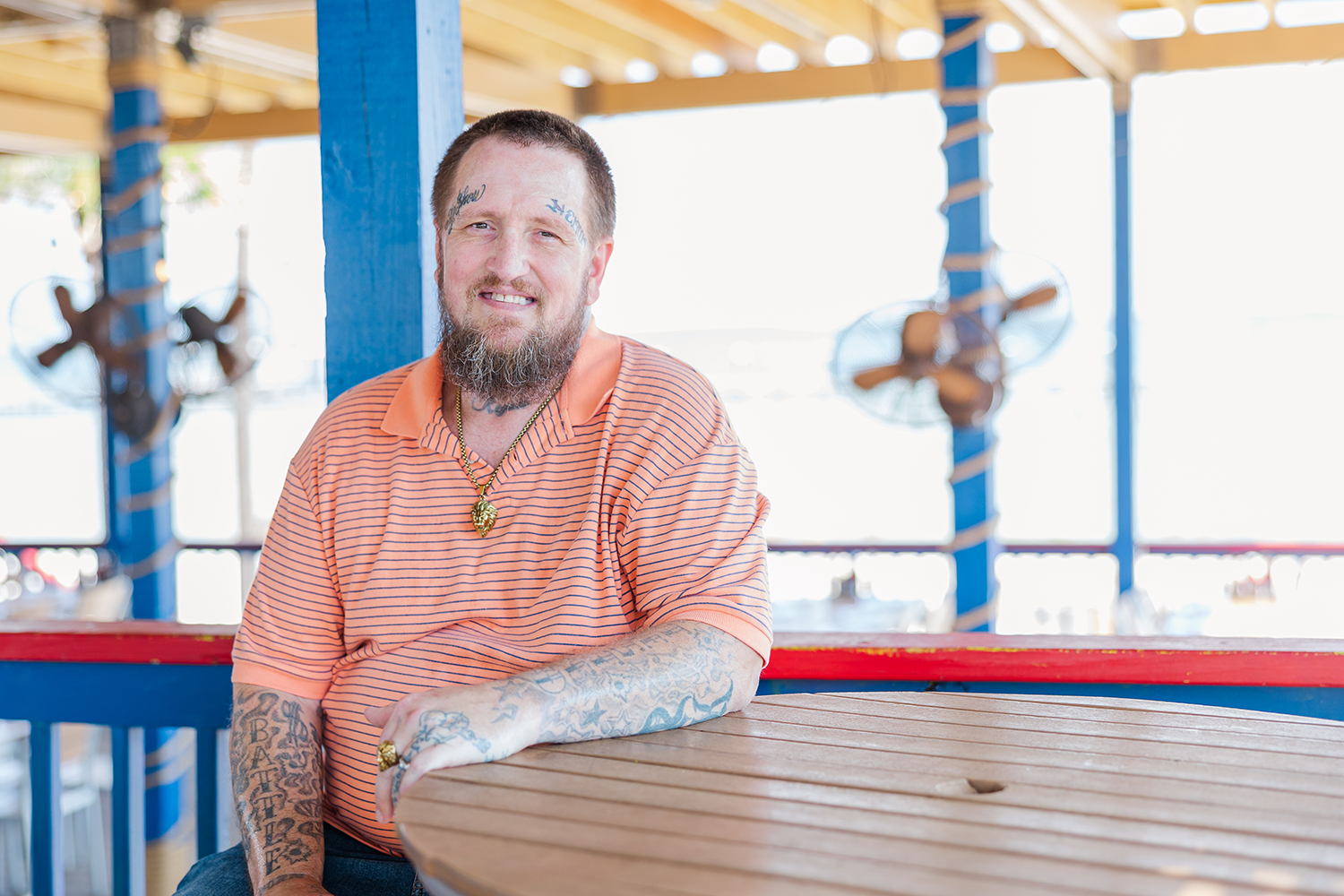
Today, he is in good health and learning how to be present. He finds peace in everyday moments, like grocery shopping and spending time with family. “I’m wingin’ it,” he says.
Rudolph does not claim to have all the answers, but he believes in the journey. “In order for God to get you where he wants you, he’s got to be able to use you where he has you,” he says. “And that’s what it is. You have to be here in order to get there.”
Thank you for reading. The Bail Project is a 501(c)(3) nonprofit organization that is only able to provide direct services and sustain systems change work through donations from people like you. If you found value in this article, please consider supporting our work today.







